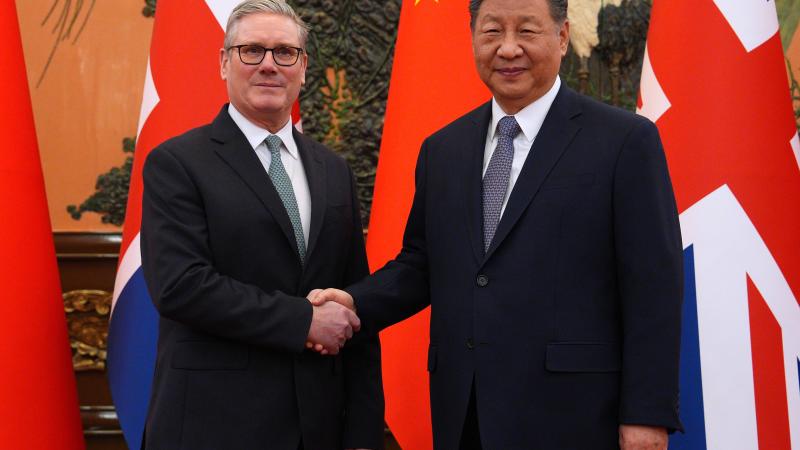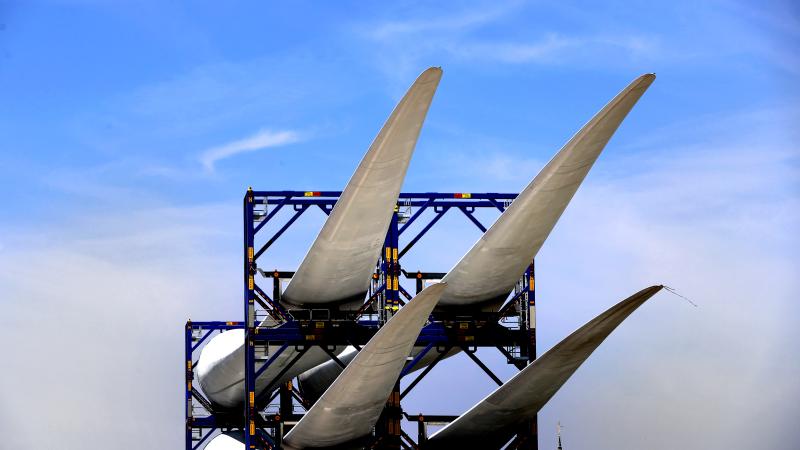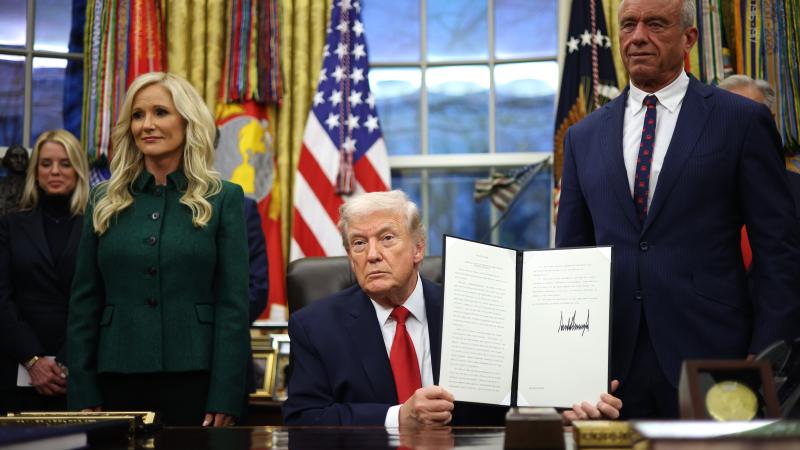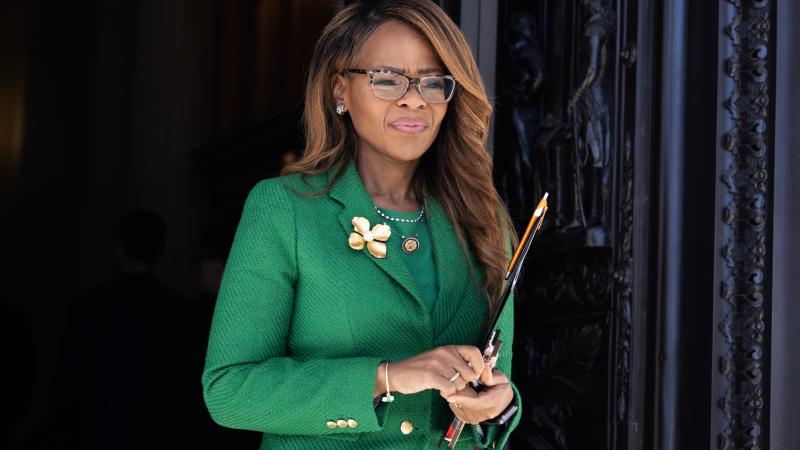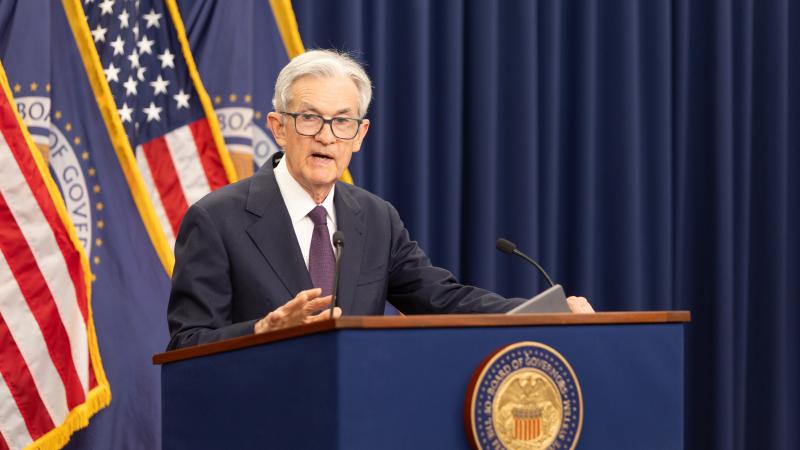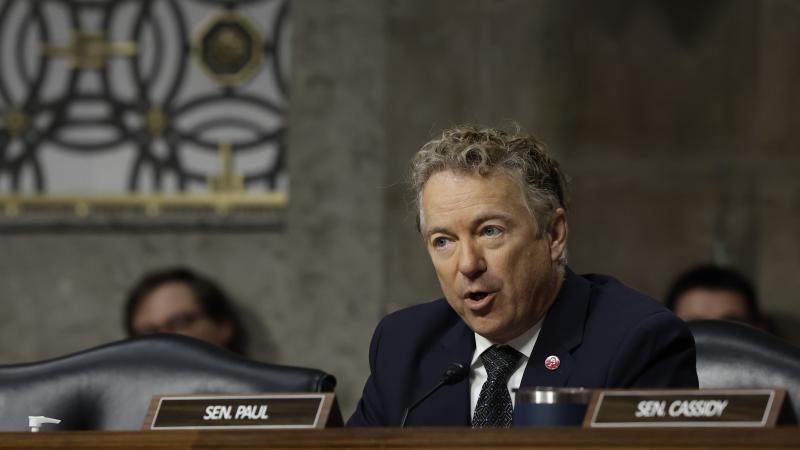Dems push $2,500 tax credit for used EVs, up to $12,500 for new union EVs in rush to '100% use'
"We want to make sure this electric vehicle revolution is something that's accessible for everyone," said California Democratic Rep. Mike Levin.
Despite President Biden's $2 trillion Build Back Better Act stalling in the Senate, some House Democrats are pushing for the passage of a $2,500 federal credit for used electric vehicle purchases as well as a $7,500 credit for new EVs and an extra $4,500 for union-made EVs.
The original House-passed version of the Build Back Better Act offered a $500 bonus for EVs with batteries that were manufactured in the U.S.
At a press conference to promote the clean-energy provisions in Build Back Better, Democratic lawmakers were asked if it is fair for the federal government to offer a special purchase incentive for union-made EVs over nonunion manufactured EVs such as Toyota, Honda and Tesla models.
"I think it's important that the manufacturers are allowing for collective bargaining rights for their employees," said California Rep. Mike Levin. "I think that when that language was included in Build Back Better, I know, there were those who felt it may be violative of the U.S.-Mexico-Canada trade agreement. I know those issues were being worked through."
Toyota is one of the nonunion manufacturers publicly outspoken against providing additional EV credits to customers who purchase U.S. union-made EVs, arguing that it results in unfair competition.
"This isn't fair. This isn't right," the company said in an ad late last year. "Congress needs to put the politics aside on this one. Do the right thing. Treat all American autoworkers fairly."
Levin pointed out that West Virginia Democratic Sen. Joe Manchin was against the bonus $4,500 EV credit for union-made EVs. Manchin ultimately declared he would vote against the House-passed version of the Build Back Better Act, which included about $550 billion in federal funding for climate change and clean energy initiatives.
"Look, I am supportive of vehicle electrification and any company that innovates in that space," he said. "If you look at our garage, right now, you'll see a Tesla, and you'll see a Chevy Volt — let you figure out for yourself which one is my wife's. She has the nicer car, but nonetheless, I'm very proud of my union-made Chevy Volt. I hope that there'll be a whole portfolio of additional electric vehicles that are union-made.
"I know that the UAW is working closely with some of our manufacturers to make that happen. I also think it's important, in addition, that we have a EV tax credit for used EV purchases as well, not just for expensive new EVs, or even middle-priced new EVs, but Build Back Better did include a $2,500 credit, and I hope that's something that we can get across the finish line, because we want to make sure this electric vehicle revolution is something that's accessible for everyone."
New Jersey Democratic Rep. Tom Malinowski said he agreed with Levin's position on the EV credits.
"Our problem in America is not that consumers aren't incentivized enough to purchase electric vehicles," he said. "The problem is that those who are face a huge waiting list. That's in some ways a good thing, right? Another data point supporting our contention that this is the future.
"I think in the medium to long run we do need to strengthen the incentives because we want to get to 100% use, but right now, it's also an argument for getting the supply chain legislation, the America COMPETES Act, through so that we can deal with the microchip shortage. That's one of the big reasons why supply is not keeping up with demand for electric vehicles."
Malinowski called for "even bigger investments" around electrification such as additional funding for "the electric grid that's going to need to be upgraded as we plug all these electrical vehicles into the grid over the coming years."
"Not to mention improvements in battery technology," he continued, "bringing manufacturing of those technologies back to the United States so we're not as vulnerable on global supply chain. So all of these things go together as we try to electrify transportation in the United States."






